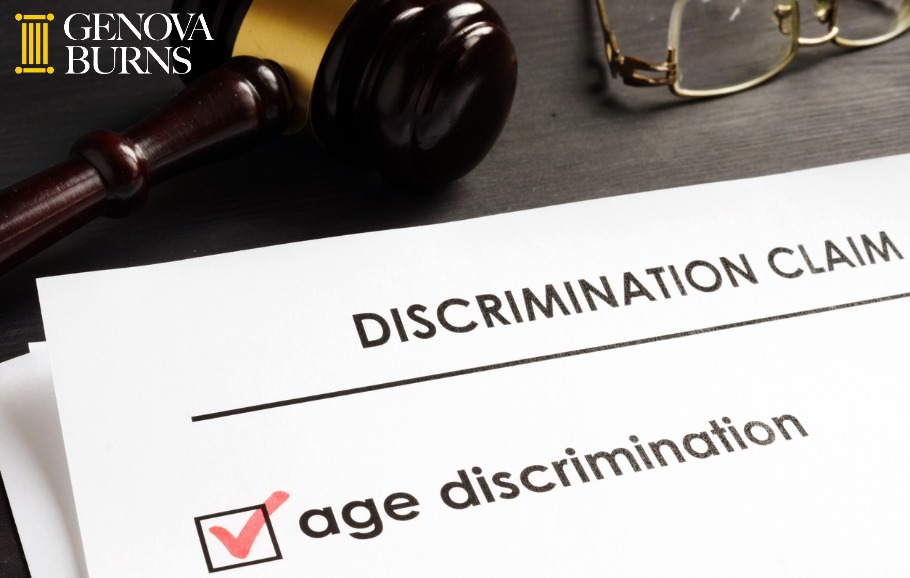Is Age Just A Number?
The Third Circuit Thinks It Can Be
August 24, 2022
On August 15, 2022, in Cronin v. Booz Allen Hamilton Inc., et al., the Third Circuit Court of Appeals upheld the District of New Jersey’s grant of summary judgement to Booz Allen on Cronin’s age discrimination claims, finding that Cronin was unable to show that Booz Allen’s non-discriminatory reasons for not hiring her were “so plainly wrong that it cannot have been [Booz Allen]’s real reason.” Absent such a showing, the Third Circuit would not overturn the decision of the District Court.
Facts
Anne Marie Cronin (Cronin) worked for Booz Allen Hamilton Inc. (Booz Allen) as a Human Resources Business Partner (HRBP) from 2004 until her separation in August 2017, precipitated by Booz Allen’s reorganization of its Human Resources department. The reorganization started in 2015 when Booz Allen adopted Workday as its new HR software platform. Because Booz Allen anticipated that Workday would “enable[ ] the business units to perform their own HR transactions[ ] instead of going through an HRBP[,]” Booz Allen sought to transition its HRBPs to a “more strategic and proactive role of an advisor and consultant regarding future business needs.” Booz Allen titled these roles Human Resources Talent Consultants (HRTC).
While Booz Allen told their then-current HRBPs, including Cronin, that they would have the first opportunities to apply for the new HRTC positions, Booz Allen created fewer HRTC positions than HRBPs. This meant that not every HRBP would retain a role as an HRTC, and each HRBP would have to go through an application process to be considered. In reviewing each applicant, Booz Allen reviewed the applicant’s resume, annual performance review for 2016, and manager feedback, which included a “numerical ranking on a one-to-three scale.” Each applicant was also asked the same five questions, and underwent an interview with the three-person hiring committee.
Cronin was not selected for an HRTC role, which she blamed on her being over 40 years old. According to Booz Allen’s statistics, however, 34 people applied for an HRTC role, with 23 of the 34 being over the age of 40. Out of those 23, 11 were given the HRTC role. In contrast, 9 out of the 11 applicants under the age of 40 were retained as HRTCs. Nonetheless, Cronin filed suit in state court, and Booz Allen removed the case to federal court.
District Court Decision
The District Court held that Cronin was unable to show that Booz Allen’s non-discriminatory reason was pretextual. Specifically, Booz Allen proffered that Cronin was not selected for the HRTC role because she was “less qualified for the new role than the candidates who were selected as HRTCs.” Despite her attempts to show otherwise, the District Court found that Cronin had “not met her burden at the pretext step of the McDonnell Douglas test,” granting summary judgment accordingly.
Third Circuit Decision
The Third Circuit affirmed the District Court’s grant of summary judgment, agreeing that Cronin could not show pretext. Cronin cited four reasons why Booz Allen’s non-discriminatory reason was pretextual: 1) she had a history of positive performance reviews and Booz Allen failed to consider anything older than 2016; 2) Booz Allen retained younger, less qualified employees; 3) Booz Allen hired younger employees in 2014-2015 in anticipation of retaining them during the reorganization; and 4) a decision maker allegedly said they were looking for “fresh new blood” to fill the HRTC roles. The Third Circuit found none of these reasons compelling.
In an important affirmance of a company’s right to set their own employment criteria, the Third Circuit found no issue with Booz Allen’s decision to rely only on 2016 performance reviews. Citing Third Circuit precedent, the Court found that it would “‘not second guess the method an employer uses to evaluate its employees’” absent a showing that “the evaluating criteria . . . lacks any relationship at all to the performance of the employee being evaluated.” Here, that was clearly not the case, and, importantly, the method was applied equally.
The Court also found unpersuasive Cronin’s assertion that younger, less qualified individuals were chosen for the HRTC roles. The Court held that although “it is undisputed that, unlike Cronin, some candidates hired as HRTCs did not possess certain qualifications included in the job description related to education and HR experience[,]” this applied to applicants both under, and over, 40 years old. This, the Court found, “undermin[ed] any suggestion that overlooking these criteria for under-40 candidates amounted to pretext.”
Lastly, the Court held that there was “nothing facially troubling about the age breakdown” of the individuals hired in 2014-2015, and that the phrase “‘new blood’ or equivalent phrases, standing alone [do not] evince age discrimination.” Finding no evidence of pretext, the Third Circuit affirmed the District Court’s grant of summary judgement for Booz Allen.
Bottom Line
The Third Circuit’s decision is an encouraging message to employers that spending the time and energy to come up with an unbiased reorganization/hiring program will be rewarded. Booz Allen’s equal application of clear, objective criteria, resulted in a balanced reorganization of its HR department with both younger and older workers filling the new roles. Cronin’s inability to draw an inference of discrimination from those statistics proves once again that prevention is better than cure.
For more information regarding this decision and for guidance and strategy on how to plan and implement department reorganizations/hiring programs, please contact John C. Petrella, Esq., lead Partner of the firm’s Employment Law & Litigation practice via email here or Dina M. Mastellone, Esq., lead Partner of the Firm’s Human Resources, Counseling & Compliance practice via email here, or call 973.533.0777.
Tags: Genova Burns LLC • Dina M. Mastellone • John C. Petrella • Thomas L. Bellifemine • Age Discrimination • Reorganization • Employment Law & Litigation • Labor Law • Human Resources Counseling & Compliance

